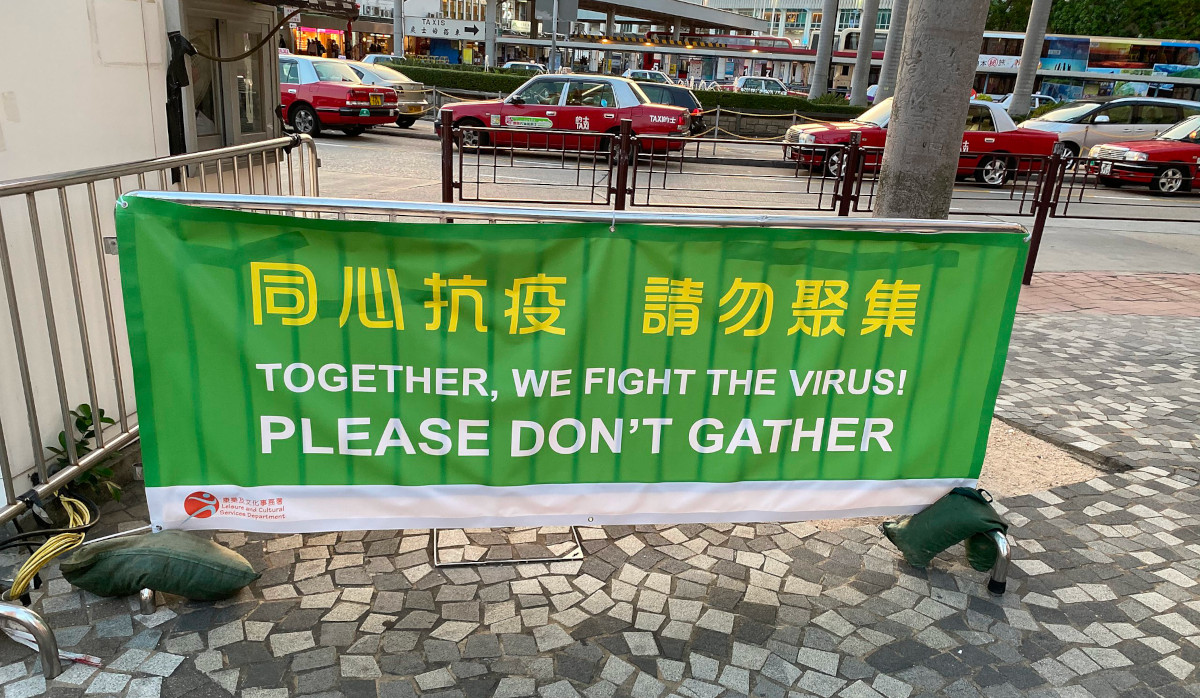Two of Hong Kong’s government Covid-19 advisors recommend that the city drop its mandatory hotel quarantine requirement for international travellers and end social distancing restrictions imposed during the Omicron-fuelled fifth wave of the pandemic in the city. They also advise the authorities to reopen international borders and cancel daily antigen testing for schools.
The recommendations appeared in an article written by four members of the University of Hong Kong (HKU). Two of the authors — Dr Ivan Hung Fan-ngai and Dr Yuen Kwok-yung — are part of the new HKSAR government’s Covid-19 Expert Advisory Panel. The authors state that since “Covid-19 is here to stay […] the most reasonable course of action is to achieve hybrid immunity as soon as possible so that life can go back to normal.”
Five Recommendations To Ease The Restrictions
In the article published on Friday, the authors urged for a shift in pandemic strategy, and provided the following recommendations:
- Home isolation instead of hotel quarantine: The chief priority should be gradually replacing hotel isolation for overseas travellers with home quarantine, in combination with PCR tests and rapid antigen tests (RATs). Eventually, this split quarantine arrangement should give way to only daily PCR testing with a tracker bracelet. Currently, international arrivals must stay at a Designated Quarantine Hotel (DQH) for at least seven days, and undergo regular RATs and PCR tests within the first two weeks of their arrival into the SAR.
- Remove social distancing measures: The authors urged the government to “step down social distancing and border control during the summer when environmental survival and airborne transmission of the virus is lower… to achieve the most protective hybrid immunity before winter.” They only recommend that universal indoor masking should remain.
- Stop daily testing for schools: The current daily negative RAT requirement for students and teaching staff to enter school premises should be scrapped. Schools, childcare facilities and kindergartens should instead modify existing influenza surveillance mechanisms for Covid-19.
- Home isolation for local cases: Confirmed local cases should be sent to Community Isolation Facilities only if they live in cramped conditions or have close contacts who could get severe Covid. Otherwise, they should isolate at home. The authors also discourage “different rules for different variants”.
- Retain vaccine pass: The HKU experts say the vaccine pass should be in use until after “the inevitable sixth wave”, especially at wet markets and supermarkets. Once the LeaveHomeSafe app gets its colour-coded update, it will prevent inbound travelers from visiting restaurants and pubs for the first seven days.
Other recommendations include limiting contact tracing to inpatient facilities, kindergartens, playgroups and elderly homes, ending Restriction Resting Declarations (informally called building lockdowns) and Compulsory Testing Notices (CTNs), and only hospitalising patients with severe disease or new variants “when their epidemiological or clinical significance are still uncertain”.
The Secretary For Health Explained Some Conditions
Hong Kong’s new Secretary for Health, Lo Chung-mau, addressed these suggestions during a radio show on Saturday and said that he will consider them, but he mentioned that vaccination for the elderly and children under 3 years old is still relatively low, and that, in order to loosen the restrictions, the city’s medical system’s capability would have to be examined. He also said that, “We cannot solely rely on an immunisation barrier or the concept of hybrid immunity and say we need not do anything,” adding that, “policymaking does not depend on a certain theory”.
Lo recently said that quarantine-free travel into Hong Kong may be possible by November 2022, with the aid of a local health code and increased PCR testing. This is in line with Chief Executive John Lee Ka-chiu’s stance that the government will strike a balance between reducing anti-pandemic travel regulations and limiting the spread of Covid-19.
Header image credits: LN9267 via Wikicommons




